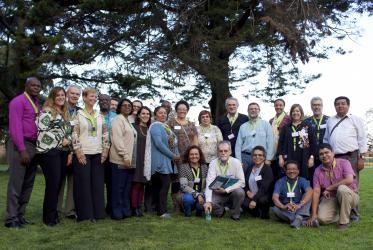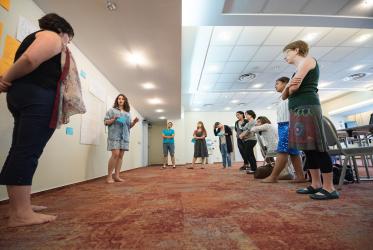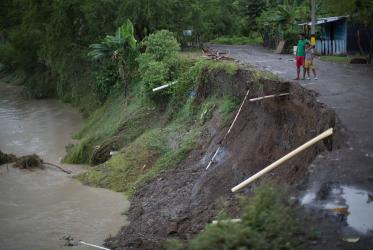Displaying 81 - 100 of 172
Catholic official: we must walk and pray together with vulnerable people
19 September 2018
90 faces of WCC: 1948-2018
22 August 2018
Diakonia: “a tool to reach abundance of life”
24 July 2018
Young People Involved in Ecumenical Diakonia and Sustainable Development
14 - 20 July 2018
Matanzas, Cuba
Voices from Colombia: “What if we have no land to till?”
15 February 2018
WCC pilgrims visit the wounds of Colombia
13 February 2018
Seven weeks of Lent highlight water justice in Latin America
12 February 2018
WCC delegation visits Conference of Latin American Bishops
08 February 2018
Konrad Raiser shares ecumenical journey of transformation
06 February 2018
WCC 70th anniversary started in Beijing
07 January 2018
Asian church leaders exchange ideas on diaconia
19 December 2017











